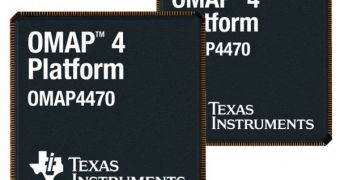Texas Instruments may not be the most prominent provider of smartphone and tablet processors, but its OMAP processors aren't exactly considered poor options either. The point will soon be moot though.
In a turn of events that may leave some surprised and other gleeful, Texas Instruments has decided to step out of the smartphone business, for the most part.
Though its OMAP processor line will continue to exist and evolve, the embedded market will become the primary beneficiary.
Things might have been different if Samsung and Qualcomm did not have such a strong grip on the mobile processing market, not counting Apple.
Texas Instruments managed to get by with the scraps so far (Motorola and Amazon are the only clients worth mentioning), but the poor worldwide economy and generally disappointing returns have made the prospect of continuing in this manner impractical.
That said, TI will also be cutting 1,700 jobs, equivalent to 5% of its workforce, over the next few weeks/months.
"We have a great opportunity to reshape our OMAP processor and wireless connectivity product lines to concentrate on embedded markets," said Greg Delagi, senior vice president of Embedded Processing.
"These job reductions are something we do with a heavy heart because they impact people we care deeply about. We will work closely with all employees affected by these changes to provide a range of assistance related to compensation, benefits and job search."
From here on out, Texas Instruments will have VIA to contend with. Samsung and Qualcomm will be there on the embedded front too, but their stake in the market is not as large and unyielding as on the smartphone front, so TI should be able to do well for itself, since its OMAP line of chips hasn't disappointed yet.
Financially, Texas instruments hopes to reduce annual costs by $450 million by the end of next year (353 million Euro), though the changes will lead to a loss of $325 million / 255 million Euro this quarter (Q4 2012).

 14 DAY TRIAL //
14 DAY TRIAL //